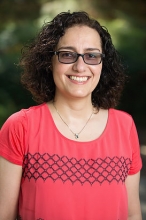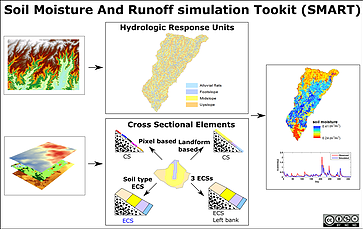CEE Seminar: Toward Improved Hydrologic Prediction Using Integrated Land Surface-Groundwater Models

Assistant Professor
Environmental Sciences
UC Riverside
Abstract: Increases in greenhouse gas concentrations are expected to impact the terrestrial hydrologic cycle through changes in radiative forcings and plant physiological and structural responses. As a result, projections of future changes in water resources become complicated due to the tight coupling between the biosphere and terrestrial hydrologic cycle. In recent years a number of physically based integrated hydrologic models are developed to simulate terrestrial hydrologic processes from atmosphere to the land surface and subsurface. Despite their complex structure, integrated hydrologic model predictions suffer from the same elements of uncertainty in hydrologic modeling. In the first part of this talk, I will discuss the issue of uncertainty in model initialization in integrated hydrologic model predictions by presenting case studies from catchments in Denmark and Australia. In the second part, I will discuss development of a computationally efficient modeling toolkit (SMART) for large-scale hydrologic predictions.

Bio: Hoori Ajami is an assistant professor of groundwater hydrology in the Department of Environmental Sciences, UC Riverside. She received her doctorate in hydrology from the University of Arizona and her bachelor's and master's degrees in environmental sciences from Isfahan University of Technology and Tehran University in Iran, respectively. Prior to joining UCR, she was a postdoctoral fellow with the National Centre for Groundwater Research and Training in Australia and a senior research associate at the University of New South Wales in Sydney, Australia. Her research interests are in the areas of catchment hydrology, surface water-groundwater interactions, and integrated land-surface groundwater modeling.
Share
Download
Upcoming Events
-
EECS Seminar: Steering Diffusion Models for Generative AI, From Multimodal Priors to Test-Time Scaling
-
MAE 298 SEMINAR: Hypersonic Viscous Aerothermochemistry - External Aerothermodynamics and Scramjet Fuel-Air Mixing
-
CBE 298 Seminar: Finding Catalysts of Gut Reactions - The Gut Microbiota in Disease Onset and Treatment
-
CEE Seminar: Confirming a Critical Foundation of Global Warming - Direct Observational Evidence from Space of the Impact of CO2 Growth on Infrared Spectra
-
CBE 298 Seminar: Teaching Transport Phenomena Through Observation - From Einstein’s Tea Leaves to Dissolving Skittles
